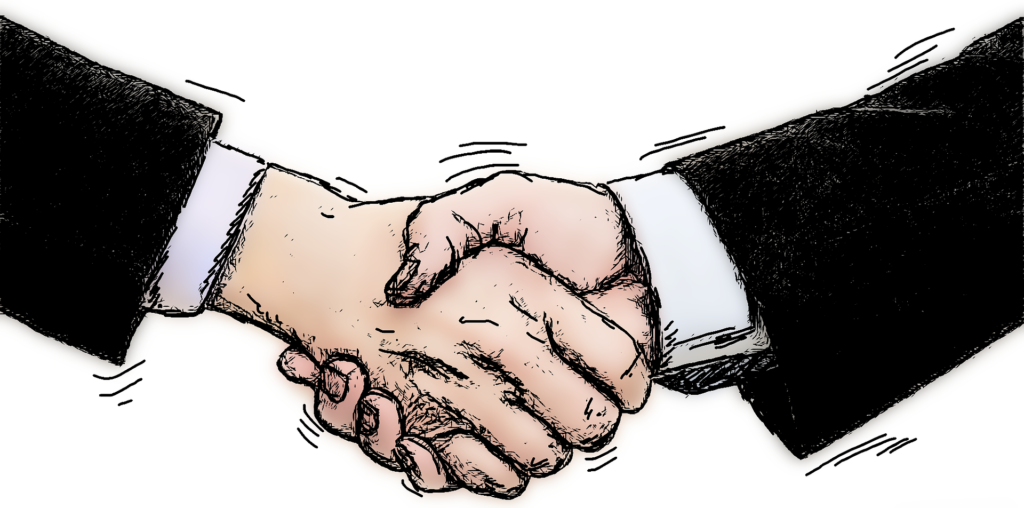Definition of goodwill (accounting): Goodwill represents the excess price for an asset over and above the identifiable fair value of an asset.
What is goodwill?
Goodwill is quite a complex accounting concept.
In a consolidated set of group accounts, goodwill equals:
The price paid for businesses acquired minus the fair value of those businesses at acquisition.
Intuitively, goodwill represents a premium that buyers are willing to pay to acquire a business, over and above the underlying value of the assets of the business.
Why does goodwill exist?
Goodwill exists as a concept because of the accounting which takes place in the consolidated accounts of a group of companies after business acquisition occurs. Consider the following example:
A group pays £30m to acquire a new subsidiary.
The balance sheet of the subsidiary has a book value of £15m
Other intangible assets could be identified, including customer lists and branding, which are worth £5m
This gives a total fair value of asset acquired of £20m.
So in summary, the group has paid £30m (Credit cash) and gained assets in return of £20m (Debit assets). Under double-entry accounting, the journal must balance, so how is the remaining £10m debit posted?
There are two options:
- Record the £10m difference as an expense in the financial statements – representing that the group appears to have made a ‘loss’ on the transaction.
- Record the £10m as an asset, to generally represent the other value it saw in the acquisition and which it now controls.
International generally accepted accounting principles (GAAP) allows companies to follow the second approach. Companies record a goodwill asset as a balancing figure, and this figure is reported as a non-current asset.
What does goodwill actually represent?
Intuitively, it is irrational for a business to pay more than something is worth. And yet, when it comes to business combinations or acquisitions, this is almost always the case.
Why is this? Do businesses always overpay for acquisitions, or is the issue that the IFRS definition of identifiable assets is too restrictive?
The answer is a mixture of both.
One aspect of goodwill which confuses accounting students (and often even financial professionals), is the fact that it is essentially a balancing figure. Because it’s a balancing figure, it can be difficult to appreciate what the goodwill figure actually represents.
In a simple sense, it must represent an economic benefit that the acquirer believes is worth paying for, yet which IFRS does not allow them to recognise as an asset.
Examples of ‘unidentifiable assets’ include:
- The value of good public relations
- The ‘stickiness’ of its customers
- The skills and talent of its employees
- The processes and ‘ways of working’ that the company uses
- The dominant position the company has in the marketplace
- The influence that the company has over lobbying efforts
All of these items would not meet the IFRS definition of a tangible of intangible asset, and therefore would not be included in the fair value calculation of assets acquired.
Therefore, if a company has incorporated any of these elements into the purchase price, you would expect goodwill to appear.
The other half of the story is that indeed yes, businesses DO sometimes overpay for acquisitions. In these circumstances, the goodwill represents little more than an expensive mistake.
Where a company believes that the value of an acquired business has fallen below the total price paid, it writes off the relevant value from Goodwill first, before it begins writing down the value of identifiable assets such as inventory.

How is the word ‘goodwill’ used in a sentence?
“The balance sheet shows £4.5m of goodwill, rising by £0.8m due to the transaction in the year”.
“Shareholders equity has fallen by £10m this year, driven by an extraordinary loss caused by the write-down of goodwill associated with a prior acquisition.”
How does the definition of goodwill relate to investing?
It is important to understand the definition of goodwill perform a review of a company balance sheet.
Due to its generality and vagueness, goodwill is perhaps the least reliable asset reported by a company.
If a company enters liquidation, it cannot sell its ‘goodwill’ at an auction and raise some money.
Therefore, you should be wary of including goodwill when measuring the book value of a company.
It may actually be useful to exclude goodwill if you are actually trying to estimate the recoverable value, i.e. the cash value if a company were to sell out its assets individually.
Companies are reluctant to write-down the value of goodwill, even if a company acquired has underperformed against its budget. This is because such a write-down would reduce the reported earnings (on which management are usually remunerated), and the write-down would raise suspicions that the group had over-paid for the acquisition or hasn’t managed it optimally since.
In the real world, we observe that companies only tend to write-off goodwill in large chunks, when the gloom is too prominent to ignore.
Executives much prefer to get the bad news out of the way in a single announcement than consistently chip away at the value of their goodwill year after year.
Expect to see much more frequent write-downs of goodwill in light of widespread economic crises, as this gives a convenient cause for management to point towards, rather than accept personal responsibility.
Read more about accounting for goodwill in Find out more about analysing the profitability of individual product lines in the best management accounting books.